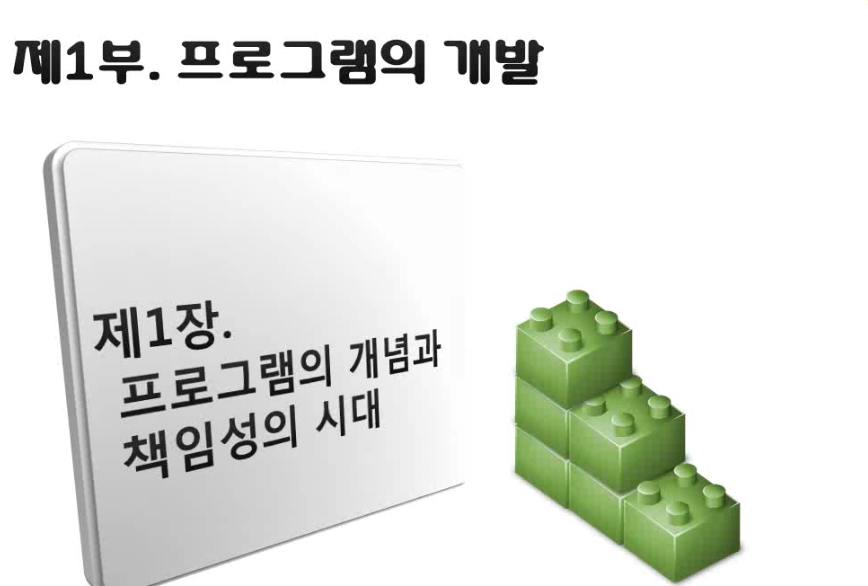Social support and resilience had emerged as key concepts during the COVID-19 pandemic, but there is limited research on programs for older adults living alone. The purpose of this study was to develop a social support and resilience enhancement progr...
http://chineseinput.net/에서 pinyin(병음)방식으로 중국어를 변환할 수 있습니다.
변환된 중국어를 복사하여 사용하시면 됩니다.
- 中文 을 입력하시려면 zhongwen을 입력하시고 space를누르시면됩니다.
- 北京 을 입력하시려면 beijing을 입력하시고 space를 누르시면 됩니다.
https://www.riss.kr/link?id=T16833254
- 저자
-
발행사항
서울 : 중앙대학교 사회복지대학원, 2023
-
학위논문사항
학위논문(석사) -- 중앙대학교 사회복지대학원 , 사회복지학과 사회복지전공 , 2023. 8
-
발행연도
2023
-
작성언어
한국어
-
주제어
독거노인 ; 사회적 지지 ; 회복탄력성 ; 프로그램 개발 ; 회상 ; 협동 ; 코로나19 ; elderly people living alone ; social support ; resilience ; program development ; recollection ; cooperation ; COVID-19
-
발행국(도시)
서울
-
기타서명
(A) study on the program effectiveness for enhancement of the social support and resilience in older adults living alone
-
형태사항
iv, 97 p. : 삽화, 도표 ; 26 cm
-
일반주기명
중앙대학교 논문은 저작권에 의해 보호받습니다
지도교수: 정슬기
참고문헌수록 -
UCI식별코드
I804:11052-000000239498
- DOI식별코드
- 소장기관
-
0
상세조회 -
0
다운로드
부가정보
다국어 초록 (Multilingual Abstract)
In order to examine he effectiveness of the program, reliability test, frequency analysis, descriptive analysis, paired sample t-test and Kruskal Wallis test were conducted. To compensate for the limitations of quantitative analysis, the researcher also analyzed the process of the program using journal records prepared by volunteers who helped to conduct the program.
The results of the study confirmed that the program had a significant impact on social support and resilience among the study participants. Among the sub-categories of social support, emotional support, informational support, and evaluative support were increased significantly. In the sub-categories of resilience, meaningfulness, equanimity, and existential isolation were increased significantly. The examination of program process notes showed that the connection and service between the elderly and the volunteers continued even after the program ended. This suggests that the relationships formed in the program can be developed into a lasting resource.
This study was the first program conducted in-person for older adults living alone immediately after a long period of social distancing due to COVID-19. The social work practice implications of this study are as follows.
First, the study is significant in that it is a program developed with frontline social workers who work with the elderly living alone on a daily basis. It considered various aspects of the elderly living alone, including their characteristics, needs, and situations.
Second, since the elderly living alone lack social support compared to other elderly persons, it is necessary to build a social support system based on their characteristics and needs, and furthermore, to establish a sustainable social network and care plan within the community.
Third, in preparation for future possible disasters, it would be necessary to develop countermeasures or online programs that can increase the social support and resilience of the elderly living alone.
Social support and resilience had emerged as key concepts during the COVID-19 pandemic, but there is limited research on programs for older adults living alone. The purpose of this study was to develop a social support and resilience enhancement program for the elderly living alone and to examine its effectiveness. The study subjects were 38 elderly people living alone recruited from a Senior Welfare Center in Seodaemun-gu, Seoul. The program was developed to enhance social support and resilience based on reminiscence and collaboration, and was administered to study participants.
In order to examine he effectiveness of the program, reliability test, frequency analysis, descriptive analysis, paired sample t-test and Kruskal Wallis test were conducted. To compensate for the limitations of quantitative analysis, the researcher also analyzed the process of the program using journal records prepared by volunteers who helped to conduct the program.
The results of the study confirmed that the program had a significant impact on social support and resilience among the study participants. Among the sub-categories of social support, emotional support, informational support, and evaluative support were increased significantly. In the sub-categories of resilience, meaningfulness, equanimity, and existential isolation were increased significantly. The examination of program process notes showed that the connection and service between the elderly and the volunteers continued even after the program ended. This suggests that the relationships formed in the program can be developed into a lasting resource.
This study was the first program conducted in-person for older adults living alone immediately after a long period of social distancing due to COVID-19. The social work practice implications of this study are as follows.
First, the study is significant in that it is a program developed with frontline social workers who work with the elderly living alone on a daily basis. It considered various aspects of the elderly living alone, including their characteristics, needs, and situations.
Second, since the elderly living alone lack social support compared to other elderly persons, it is necessary to build a social support system based on their characteristics and needs, and furthermore, to establish a sustainable social network and care plan within the community.
Third, in preparation for future possible disasters, it would be necessary to develop countermeasures or online programs that can increase the social support and resilience of the elderly living alone.
국문 초록 (Abstract)
프로그램의 효과성을 검증하기 위해 각 변수들의 신뢰도 분석, 빈도분석 및 기술통계분석, 대응표본 t-검정, 크루스칼 왈리스 검정(Kruskal Wallis test)을 실시하였고, 정규성 검정을 위해서는 샤피로 윌크 검정(Shapiro-Wilk test)을 사용하였다. 또한, 양적 분석의 한계성을 보완하기 위해 프로그램 제공자인 자원봉사자가 기록한 관찰일지를 활용하여 프로그램 과정을 분석하였다.
프로그램 효과성 검증 결과, 본 프로그램이 사회적 지지와 회복탄력성에 유의한 영향을 미치는 것으로 확인되었다. 사회적 지지의 하위요인에서는 물질적 지지를 제외한 정서적 지지, 정보적 지지, 평가적 지지와 더불어 회복탄력성 하위요인에서는 자신에 대한 믿음 및 인내를 제외한 의미부여, 평정심, 실존적고립의 변화가 유의하였다. 또한, 프로그램 관찰일지를 통한 과정 평가에서 주목할 점은 프로그램 종결 이후에도 독거노인과 자원봉사자 간에 결연 및 기획봉사가 지속되어 프로그램에서 형성된 관계가 지속적인 자원으로 변화될 수 있음을 시사하였다.
본 연구는 코로나19로 인해 장기적으로 사회적 거리두기가 시행되었다가 완화된 직후 독거노인을 대상으로 대면 프로그램으로 진행한 연구라는 측면에서 의의가 있다. 본 연구를 통해 도출한 사회복지 현장의 실천적 함의는 다음과 같다.
첫째, 본 연구는 일선 사회복지실천현장에서 독거노인을 매일 마주하는 사회복지사들과 함께 개발한 프로그램으로 진행한 연구로 독거노인의 특성과 욕구, 상황 등 다양한 측면을 고려했다는 점에서 의의가 있다.
둘째, 독거노인은 타 유형의 노인에 비해 사회적 지지가 부족하므로 이들의 특성과 욕구에 기반한 사회적 지지 체계 구축이 필요하며, 더 나아가 지역 사회 내에서 지속가능한 사회적 관계망 구축 및 돌봄 방안을 마련해야 한다.
셋째, 향후 감염병 또는 국가적 재난에 대비하여 독거노인의 사회적 지지 및 회복탄력성을 높일 수 있는 대응책 마련 또는 비대면 프로그램의 개발이 필요하다.
코로나19 재난 사태에서 주요한 개념으로 부상한 사회적 지지와 회복탄력성에 대해서 다양한 연구가 이뤄지고 있으나, 독거노인을 대상으로 한 프로그램 개발은 미비한 실정이다. 본 연구는...
코로나19 재난 사태에서 주요한 개념으로 부상한 사회적 지지와 회복탄력성에 대해서 다양한 연구가 이뤄지고 있으나, 독거노인을 대상으로 한 프로그램 개발은 미비한 실정이다. 본 연구는 독거노인을 대상으로 하는 사회적 지지와 회복탄력성 향상 프로그램을 개발하고 효과성을 검증하는 것을 목적으로 한다. 연구대상은 서대문구 소재의 노인종합복지관을 이용하는 독거노인 38명으로 회상과 협동 요소를 기반으로 한 사회적 지지와 회복탄력성 향상 프로그램을 개발하고 진행하였다.
프로그램의 효과성을 검증하기 위해 각 변수들의 신뢰도 분석, 빈도분석 및 기술통계분석, 대응표본 t-검정, 크루스칼 왈리스 검정(Kruskal Wallis test)을 실시하였고, 정규성 검정을 위해서는 샤피로 윌크 검정(Shapiro-Wilk test)을 사용하였다. 또한, 양적 분석의 한계성을 보완하기 위해 프로그램 제공자인 자원봉사자가 기록한 관찰일지를 활용하여 프로그램 과정을 분석하였다.
프로그램 효과성 검증 결과, 본 프로그램이 사회적 지지와 회복탄력성에 유의한 영향을 미치는 것으로 확인되었다. 사회적 지지의 하위요인에서는 물질적 지지를 제외한 정서적 지지, 정보적 지지, 평가적 지지와 더불어 회복탄력성 하위요인에서는 자신에 대한 믿음 및 인내를 제외한 의미부여, 평정심, 실존적고립의 변화가 유의하였다. 또한, 프로그램 관찰일지를 통한 과정 평가에서 주목할 점은 프로그램 종결 이후에도 독거노인과 자원봉사자 간에 결연 및 기획봉사가 지속되어 프로그램에서 형성된 관계가 지속적인 자원으로 변화될 수 있음을 시사하였다.
본 연구는 코로나19로 인해 장기적으로 사회적 거리두기가 시행되었다가 완화된 직후 독거노인을 대상으로 대면 프로그램으로 진행한 연구라는 측면에서 의의가 있다. 본 연구를 통해 도출한 사회복지 현장의 실천적 함의는 다음과 같다.
첫째, 본 연구는 일선 사회복지실천현장에서 독거노인을 매일 마주하는 사회복지사들과 함께 개발한 프로그램으로 진행한 연구로 독거노인의 특성과 욕구, 상황 등 다양한 측면을 고려했다는 점에서 의의가 있다.
둘째, 독거노인은 타 유형의 노인에 비해 사회적 지지가 부족하므로 이들의 특성과 욕구에 기반한 사회적 지지 체계 구축이 필요하며, 더 나아가 지역 사회 내에서 지속가능한 사회적 관계망 구축 및 돌봄 방안을 마련해야 한다.
셋째, 향후 감염병 또는 국가적 재난에 대비하여 독거노인의 사회적 지지 및 회복탄력성을 높일 수 있는 대응책 마련 또는 비대면 프로그램의 개발이 필요하다.
목차 (Table of Contents)
- 제1장 서론 1
- 제1절 연구의 필요성 1
- 제2절 연구목적과 연구문제 5
- 제2장 이론적 배경 6
- 제1절 한국 독거노인의 현황과 특성 6
- 제1장 서론 1
- 제1절 연구의 필요성 1
- 제2절 연구목적과 연구문제 5
- 제2장 이론적 배경 6
- 제1절 한국 독거노인의 현황과 특성 6
- 1. 독거노인의 개념 및 현황 6
- 2. 독거노인의 특성 8
- 제2절 노년기와 사회적 지지 12
- 1. 사회적 지지의 개념 12
- 2. 사회적 지지의 유형 16
- 3. 주효과모델과 완충모델 17
- 4. 노년기의 사회적 지지 20
- 5. 독거노인의 사회적 지지 21
- 6. 사회적 지지 향상 프로그램 관련 선행연구 23
- 제3절 노년기와 회복탄력성 24
- 1. 회복탄력성의 개념 24
- 2. 회복탄력성의 구성요인 및 특성 30
- 3. 노년기의 회복탄력성 32
- 4. 회복탄력성 증진 프로그램 관련 선행연구 33
- 제3장 연구방법 36
- 제1절 연구문제 및 연구가설 36
- 제2절 연구대상 36
- 제3절 연구설계 37
- 제4절 연구절차 38
- 1. 프로그램 계획과 진행 38
- 2. 프로그램의 실시 50
- 제5절 측정도구 50
- 1. 사회적 지지 50
- 2. 회복탄력성 51
- 제6절 자료분석 52
- 1. 양적 분석방법 52
- 2. 프로그램 과정 분석 53
- 제4장 연구결과 54
- 제1절 연구대상자의 특성 54
- 제2절 프로그램의 효과성 분석 56
- 1. 단일집단 정규성 검정 56
- 2. 사회적 지지와 회복탄력성 변화 57
- 3. 영역별 프로그램 참여 집단의 사회적 지지 및 회복탄력성 변화 59
- 4. 프로그램 과정 평가 61
- 제5장 결론 및 제언 69
- 제1절 연구결과 요약 및 논의 69
- 제2절 연구의 함의 및 제언 71
- 제3절 연구의 한계 73
- 참고문헌 75
- 부록 86
- 국문초록 93
- ABSTRACT 95












